Sweden has regained its position as the most competitive economy in the European Union and is now the fifth most competitive in the world, according to a report by a leading Swiss business school.
The 2016 edition of the IMD World Competitiveness rankings shows that only Singapore, the USA, Switzerland and China Hong Kong have a more competitive economy than the Swedes, while no nation within the EU currently fares better.
Particularly impressive was non-EU member Switzerland’s position, with the country of only eight million residents placing second in the table, making it the most competitive in Europe. China Hong Kong claimed top spot meanwhile, leapfrogging the USA which dropped from first to third after leading for three successive years.
“The common pattern among all the countries in the top-20 is their focus on business-friendly regulation, physical and intangible infrastructure and inclusive institution,” said IMD World Competitiveness Center director Arturo Bris in a statement.
In western Europe the ongoing post-financial crisis recovery of the public sector was also highlighted as a key driver of improvement.
The Lausanne-based IMD has published its prestigious rankings every year since 1989, which it claims are widely regarded as the foremost annual assessment of the competitiveness of countries.
Each ranking is based on the analysis of over 340 criteria derived from the four principal factors of economic performance, government efficiency, business efficiency and infrastructure.
Also taken into consideration are responses from a survey of more than 5,400 business executives, who are asked to assess the situation in their home countries.
Last year Sweden dropped four places from fifth to ninth in the table, with the slip attributed to a relatively high unemployment rate and high taxes.
The return to the number five spot in 2016 is a boost for the Nordic nation, which has recently seen overall unemployment drop to 4.7 percent, its lowest since the global financial crisis in 2008.
Sweden ranked comfortably higher in the 2016 competitiveness rankings than European giants like Germany (12th) and the United Kingdom (18th), a further example of its ability to punch above its weight, following on from Statistics Sweden’s release of new figures that show the smaller nation’s GDP is growing at a greater rate than larger European counterparts. It is going good for Sweden!
Yesterday I visited the Swedish Ministry for Foreign Affairs (MFA) for meetings.
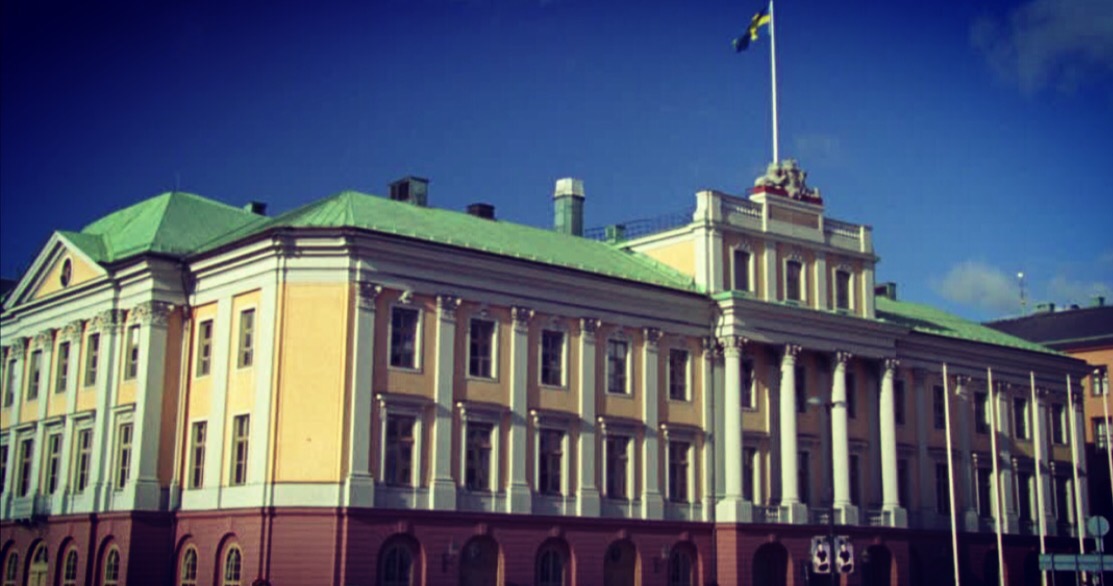
I also attended a Reception in the beautiful Ministry of Foreign Affairs palace on the occasion of an international meeting held in Stockholm, namely the 2nd WCO Europe Regional Workshop on Implementation of the WTO Trade Facilitation Agreement (TFA).
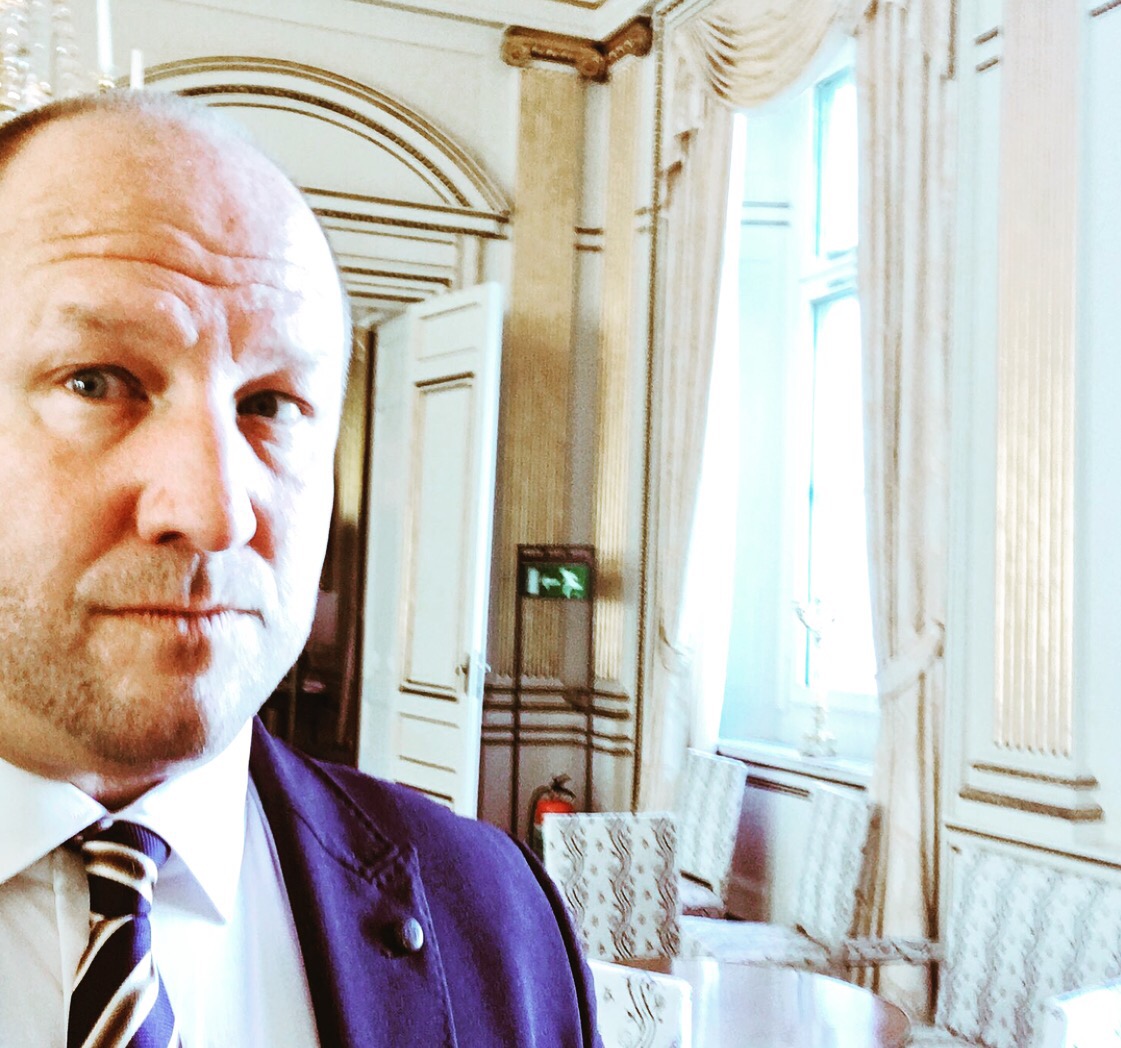
The Swedish Ministry for Foreign Affairs is located in a historic building called ‘The Hereditary Prince’s Palace’ (Arvfurstens Palats) in the very center of Stockholm. It is a beautiful location close to the Royal Palace and the Royal Swedish Opera House. For a very long time it was used by the Royal family. Since 1906 it is the home of the Minister for Foreign Affairs and the closest MFA administration.
It was great to meet many old colleagues and friends from the Customs world at this meeting and reception.
Sweden is the country in the world that makes the greatest contributions to the world and to mankind, according to the latest ranking ‘The Good Country Index’.
“Sweden is outdtanding when it comes to thinking about the rest of the world” says Simon Anholt spokesperson for the index.
The Good Country Index is a list that ranks countries according to what efforts they make to the world and it measures all countries based on 35 indicators and with data from the United Nations and the World Bank.
In the latest edition of the index, Sweden ranks in the top as number one – the country that, relative to its size, is most contributing and generous of others of all countries in the world.
Sweden is followed by Denmark and the Netherlands.

The index assesses all countries in seven different areas, namely; science and technology, culture, international peace and security, international order, the planet & the climate, prosperity & equality and health & wellbeing.
Sweden scored highest in the two categories. “To be number one in two categories is pretty amazing”, says Simon Anholt to media.
‘Health & wellbeing’ covers things that contribute to stopping the pandemic and to send doctors to the international health disasters. ‘Prosperity & equality’ is mainly about international trade.
If you want to read more about the survey and thenkndex, click here: The Good Country Index






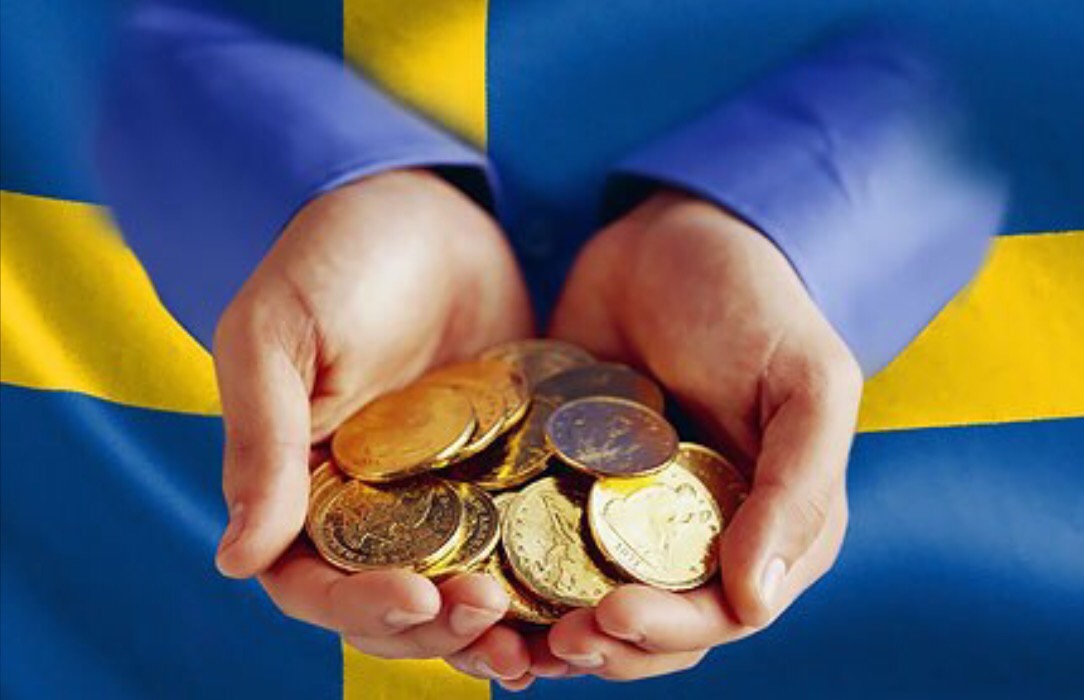
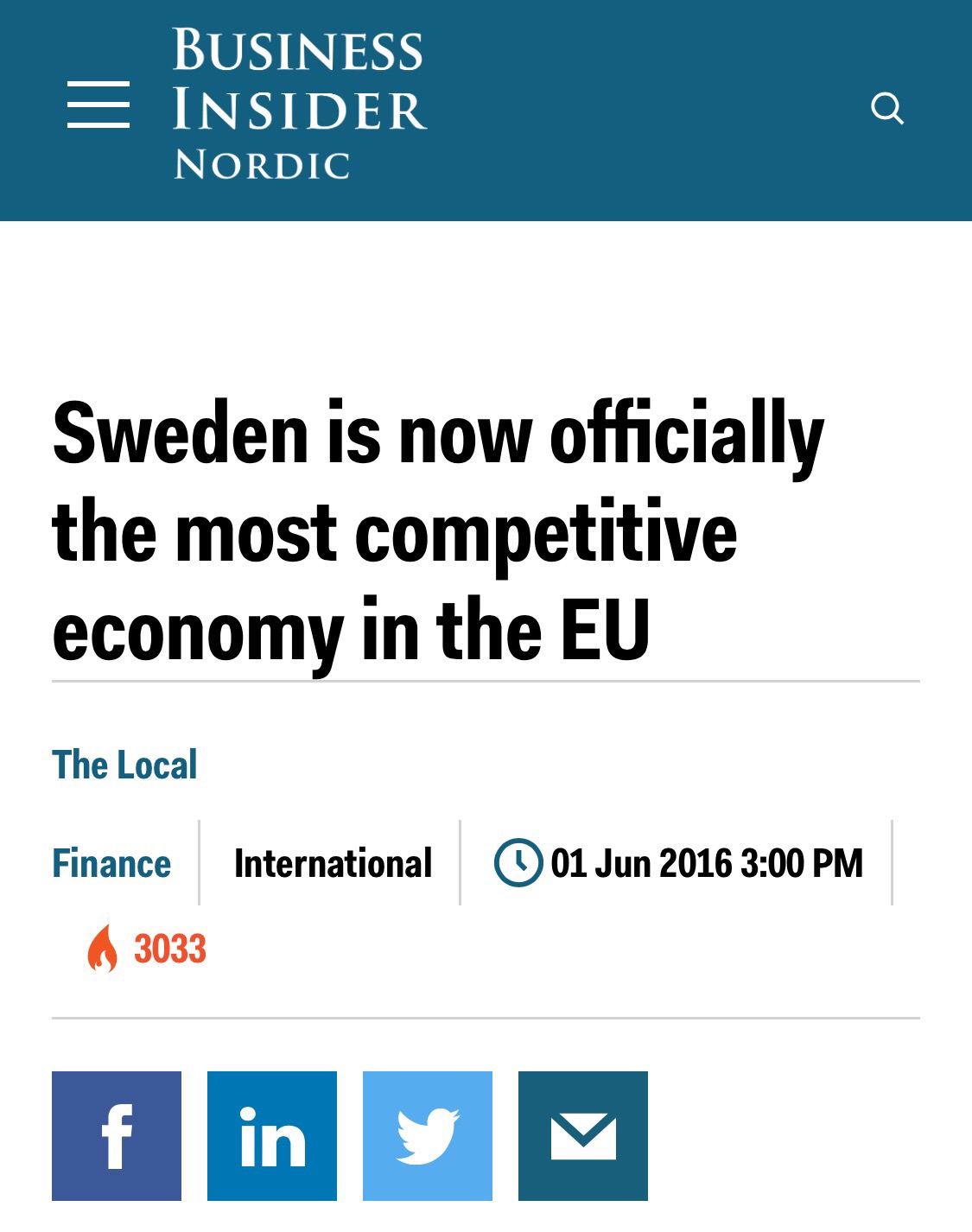
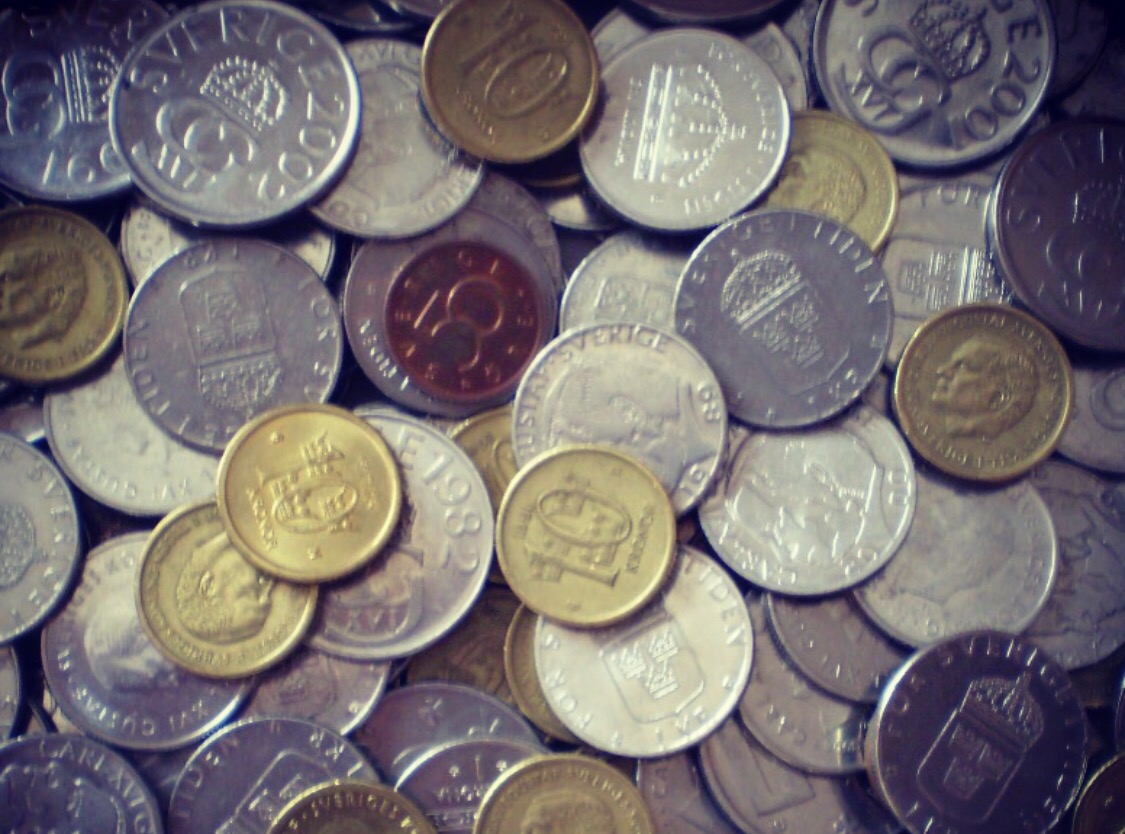

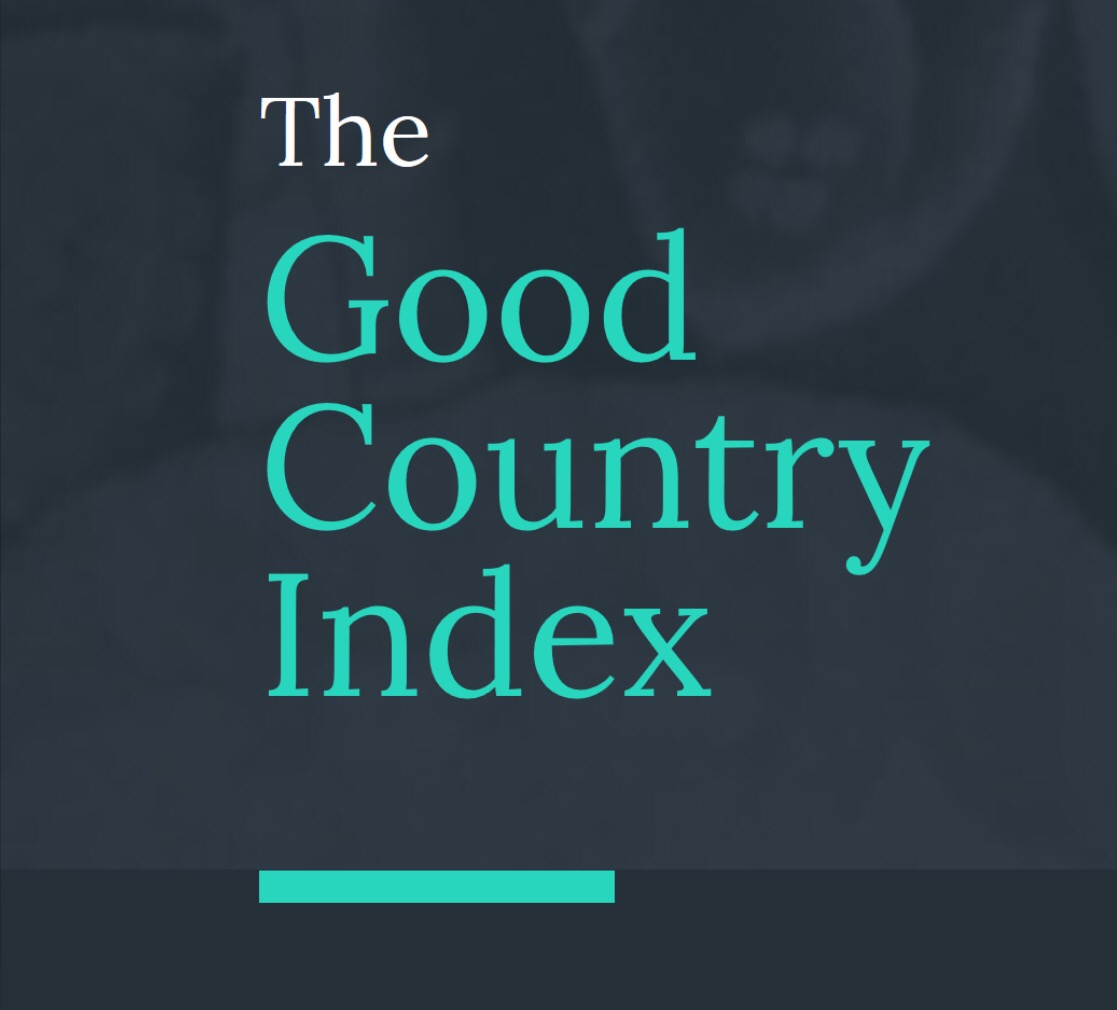

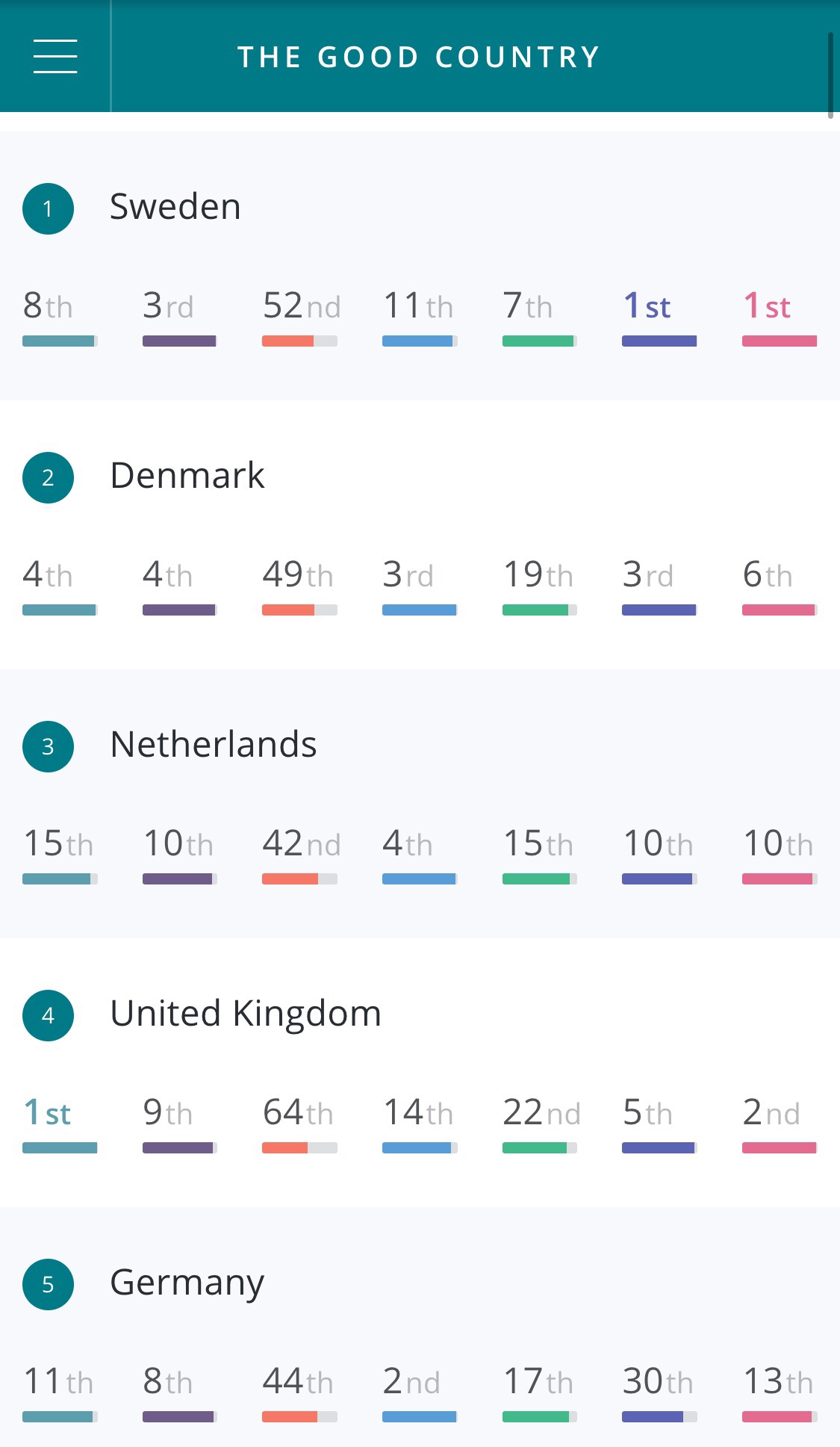
You must be logged in to post a comment.